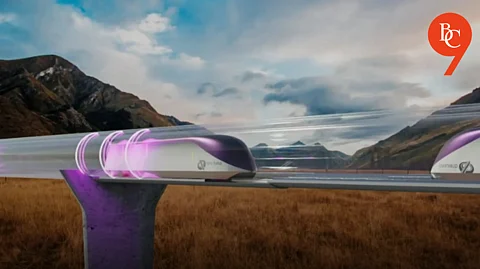

India is making significant strides towards realizing the futuristic Hyperloop transportation system, with the successful completion of a 410-meter-long test track at IIT Madras. This test facility, currently the longest Hyperloop tube in Asia, is set to become the world’s longest soon, marking a major milestone in India’s pursuit of ultra-high-speed and sustainable transport solutions.
The test track, developed collaboratively by Indian Railways, IIT Madras’ Avishkar Hyperloop team, and the incubated startup TuTr, is located at the IIT Madras Discovery Campus in Thaiyur, Chennai. Union Railway Minister Ashwini Vaishnaw officially announced the completion of the track in December 2024, sharing a video of the facility on social media and praising the young innovators behind the project.
Currently, the 410-meter vacuum-sealed tube allows testing of levitating pods propelled by magnetic levitation and linear electric motors. These pods travel in a near-vacuum environment, drastically reducing friction and enabling speeds that could eventually reach up to 1,100 km/h. The current test runs are conducted at speeds up to 200 km/h, with plans to scale up to operational speeds of around 600 km/h in future phases.
The Hyperloop technology promises to revolutionize travel by drastically cutting down journey times between major cities. For instance, the Mumbai-Pune route, which currently takes three to four hours by road or rail, could be covered in just 25 minutes. Similarly, the Delhi-Jaipur trip could be shortened to a mere 30 minutes once the technology is fully operational.
This speed, combined with the system’s energy efficiency and zero direct emissions, positions Hyperloop as a game-changer for India’s transportation infrastructure, complementing ongoing projects like bullet trains and hydrogen-powered trains.
The Indian government, through the Ministry of Railways, has provided substantial financial and technical support to the Hyperloop initiative. Minister Ashwini Vaishnaw has expressed confidence in India’s ability to lead in Hyperloop technology, highlighting the project as a symbol of the country’s innovation potential and commitment to sustainable development.
